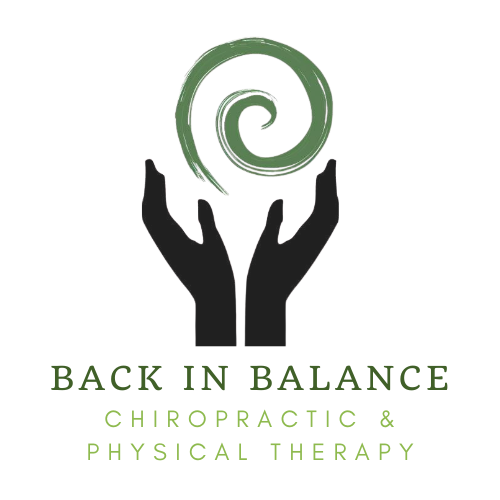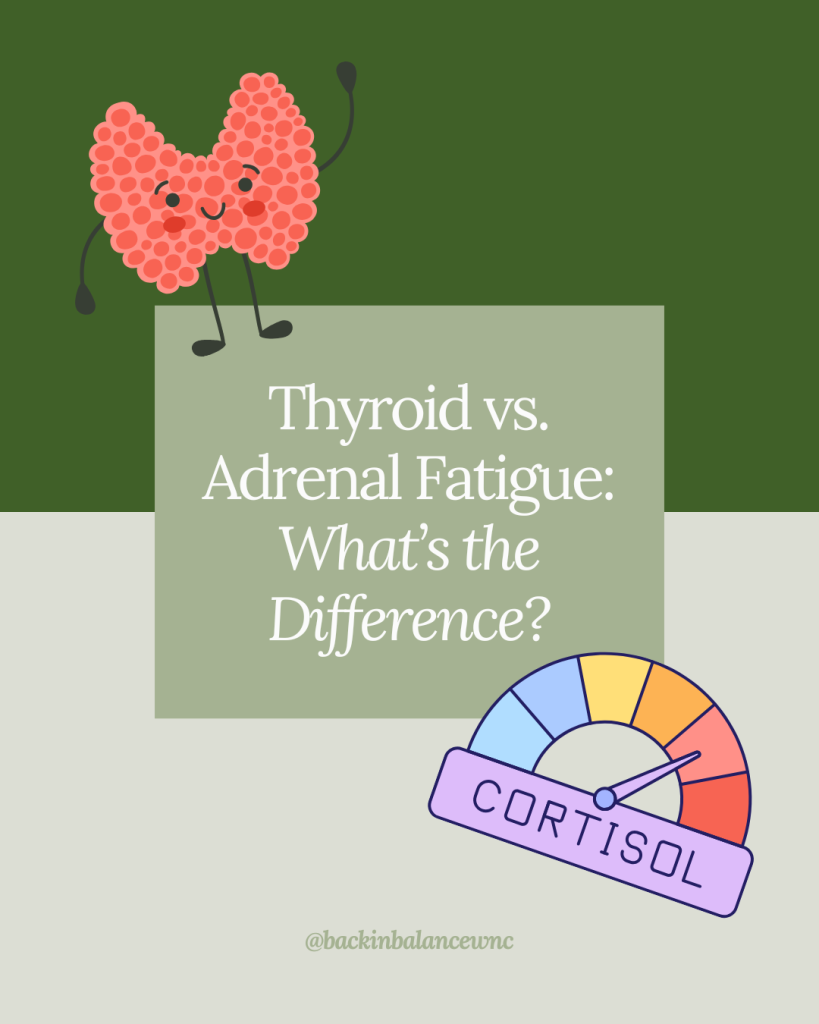Thyroid vs. Adrenal Fatigue: What’s the Difference?
Feeling tired all the time? Struggling with brain fog, weight gain, or mood swings? If you’ve ever found yourself Googling “thyroid problems” or “adrenal fatigue,” you’ve probably noticed that the symptoms overlap. So what’s really going on?
Let’s break down the difference between thyroid dysfunction and adrenal fatigue, and how to find out which one may be impacting your health.
The Thyroid: Your Metabolic Regulator
The thyroid is a butterfly-shaped gland located in your neck, and it plays a big role in regulating metabolism, energy levels, temperature, and even mood. When it’s underactive (a condition called hypothyroidism), your body slows down. Common symptoms include:
- Fatigue that doesn’t improve with rest
- Weight gain (even when eating well)
- Constipation
- Depression or low mood
- Feeling cold all the time
- Dry skin and thinning hair
- Brain fog or sluggish thinking
Thyroid issues are often rooted in autoimmune dysfunction (like Hashimoto’s), nutrient deficiencies (such as iodine, selenium, or zinc), or chronic stress. Blood work that checks TSH, Free T3, Free T4, and thyroid antibodies can help determine what’s going on.
The Adrenals: Your Stress Responders
Your adrenal glands sit on top of your kidneys and are responsible for releasing stress hormones like cortisol and adrenaline. These hormones help your body respond to stress, but when stress becomes chronic, your adrenals can get burned out, leading to what’s commonly referred to as adrenal fatigue (or more accurately, HPA axis dysregulation).
Signs of adrenal fatigue include:
- Difficulty waking in the morning (even after a full night’s sleep)
- Crashing in the afternoon
- Salt or sugar cravings
- Feeling “tired but wired” at night
- Low blood pressure or dizziness when standing
- Poor stress tolerance
- Trouble falling or staying asleep
Thyroid vs. Adrenals: Which One Is It?
Here’s the tricky part—your thyroid and adrenal glands work together. Chronic stress can suppress thyroid function, and low thyroid function can increase your body’s stress load. That means many people experience both at the same time. But understanding the root cause is essential to healing.
At Back in Balance, we take a functional approach to unraveling the real reasons behind your fatigue, mood swings, or metabolic struggles. We look beyond surface-level labs and symptoms to get the full picture—including thyroid function, adrenal health, inflammation, and nutrient levels.
What Can You Do?
If you suspect something’s off, here are some starting steps:
→ Reduce caffeine and sugar (they spike cortisol and drain the adrenals)
→ Prioritize sleep and relaxation
→ Add nutrient-dense foods to support thyroid and adrenal health (like seaweed, leafy greens, and healthy fats)
→ Consider working with a practitioner to test thyroid and adrenal function properly
Want to know what’s driving your symptoms? Schedule a Functional Health Evaluation at Back in Balance and let’s get to the root of your fatigue. We’ll guide you with personalized support so you can feel like yourself again—energized, clear, and balanced.




